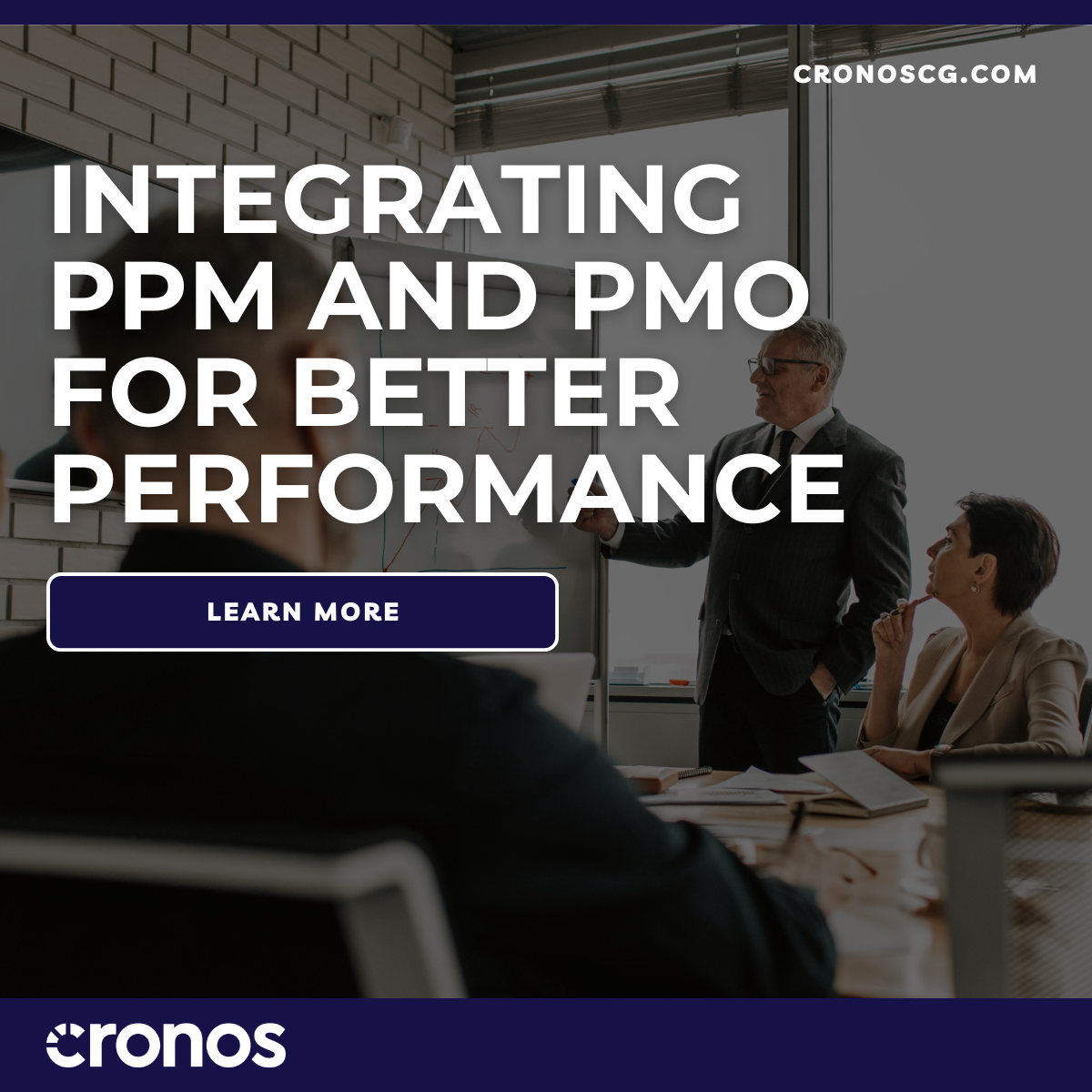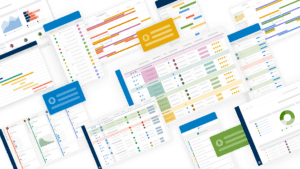Project success requires much more than skilled project managers developing plans, managing budgets, and hitting milestones across initiatives. It also depends greatly on the strategic alignment, governance, and portfolio coordination enacted at executive levels.
That is why astute enterprises implement both Project Portfolio Management (PPM) and Project Management Office (PMO) frameworks for end-to-end project optimization.
But what exactly is the difference between PPM and PMO? And why does integrating the two unlock even greater performance potential compared to isolated deployment of singular solutions?
This article explores the distinct strategic roles, key features, and collaboration benefits derived from unifying PPM and PMO capabilities organization-wide.
Distinct PPM and PMO Definitions
Project Portfolio Management (PPM) refers to the high-level prioritization, budgeting, and governing of multiple projects based on alignment to business objectives and resource capacity constraints.
Project Management Offices (PMOs) on the other hand provide operational-level standards, best practice methodologies, tools, managerial oversight, and mentoring to enhance project execution success rates.
Essentially, PPM governs “What projects should we do?” while PMOs enable “How do we ensure those projects succeed within guardrails?”
High-Level PPM Governance Activities Include:
- Funnel Scoring/Selection to pick the right projects
- Strategic Business Plan Alignment Assessments
- ROI and Balanced Scorecard Tracking
- Resource Capacity Planning
- Portfolio Budget Optimization
- Initiative Prioritization and Sequencing
While Common PMO Activities Revolve Around:
- Project Manager Mentoring and Training
- Standards Process Implementation
- Project Audit Reviews
- Communications Oversight
- Status Reporting Consolidation
- Risk Management Enforcement
When implemented in siloes, PPM and PMO solutions generate incremental performance gains in isolation. But tightly integrating the two unlocks exponential efficiency by bridging enterprise strategy down into field-level accomplishment.
Top Reasons Integrating PPM and PMO Maximizes Value
There are 5 compelling reasons unifying PPM and PMO capabilities maximizes collective impact:
1. Optimized Funding Decisions
PPM intake funnel scoring provides objective project evaluations on strategic business priority, achievable scope, realistic resourcing needs etc. These data points feed clearly into annual funding allocation cycles so only the best initiatives secure budget. PMOs then ensure execution stays within those funding guardrails through active oversight.
2. Improved Program Predictability
PMOs gather rich historical performance benchmarks on project teams related to delivery success rates, quality metrics, risk patterns etc. Sharing trends with PPM enables more accurate modeling of outcomes for proposed initiatives by leveraging risk-based Monte Carlo simulations. Predictability improves.
3. Tighter Alignment
Shared data connections between PPM and PMO platforms foster better business objective alignment from boardroom target setting through shopfloor accomplishments. Cascaded MBOs manifest via detailed PMO task tracking tied directly back to overarching KPIs.
4. Increased Adoption
Voluntary PMO adoption increases across the enterprise as project teams experience the tool support and neutral guidance helping them successfully hit objectives defined by executives in the PPM intake process. Doing great work is the best endorsement.
5. Enhanced Continuous Improvement
Common metrics taxonomies shared between PPM and PMO produce integrated data lakes of Key Performance Indicators (KPIs) that fuel a metrics-driven culture focused on continual optimization of project, program, and portfolio performance at scale.
Essentially, integrating PPM and PMO eliminates disjointed hand-offs between strategy, management, and delivery. Unification connects the dots across capability maturity levels for simplified value realization.
PPM and PMO Integration Best Practices
The most effective integration includes these core practices:
1. Select Solutions with API Connectivity
Choose PPM and PMO platforms featuring open API support and integration capabilities to enable reliable data syncing. Prioritize bidirectional connections.
2. Centralize Data in a Common Reporting Database
Implement a project data warehouse, Business Intelligence platform or operational database allowing integrated querying across PPM and PMO data sources. Create unified reports.
3. Establish Shared Taxonomies
Standardize definitions for things like project status, priority flags, risk levels, milestone categories etc. between platforms so collected data gets properly categorized using consistent language.
4. Automate Key Data Flows
Build direct integrations transferring prioritized projects from PPM into active PMO monitoring tools. Similarly automatically flow PMO audit findings or risk flags into PPM dashboards keeping executives aware.
5. Foster Collaborative Governance
Include both PPM and PMO leads within portfolio steering committees, change control boards, and other cross-project governance forums to incent perspective sharing and cohesive policymaking.
Following these tips when architecting process connectivity and data exchanges between Project Portfolio Management and Project/Program Offices ensures tight linkages between top-down strategy and bottom-up accomplishment. The business wins through execution excellence.
Sustainable Growth Needs PPM and PMO Integration
Complex global enterprises cannot be managed through intuition or improvisation alone in the modern digital landscape. Volatility and complexity demand structured work execution approaches backed by robust data. This requires integrating visibility, control, and insights across strategic planning to work delivery operations.
By unifying Project Portfolio Management prioritization and governance with Project/Program Office services and systems, organizations gain that end-to-end performance optimization. Strategy manifests through methodology. Funding fuels accomplishment. And data fuels continuous progression.
Now is the time for enterprise leaders to pursue the exponential returns derived from integrating PPM and PMO capabilities to their fullest potential. Because sustainable profitable growth depends greatly on consistent, mature project execution…and that relies upon data-driven project excellence achieved through unison of discipline and action.





